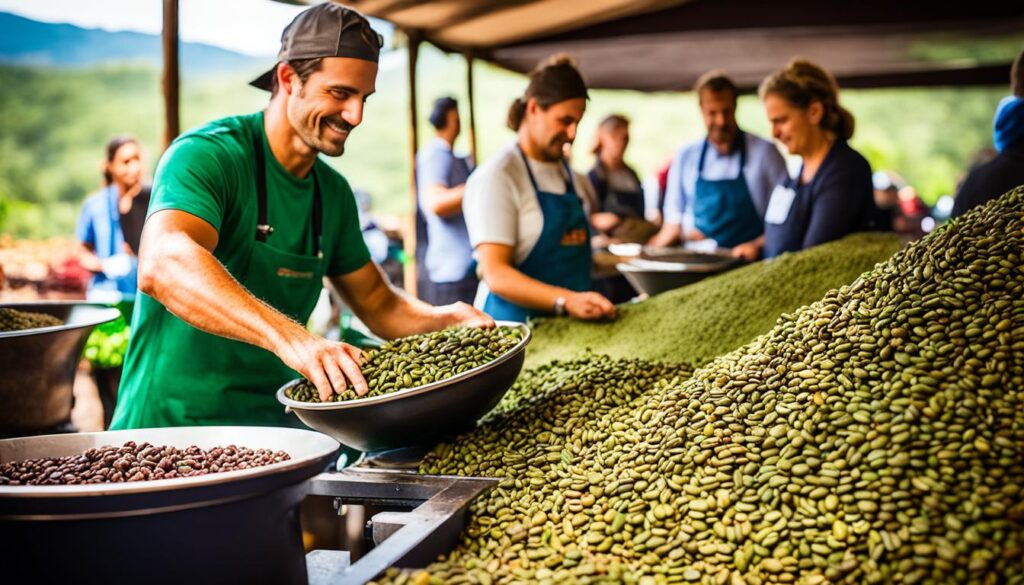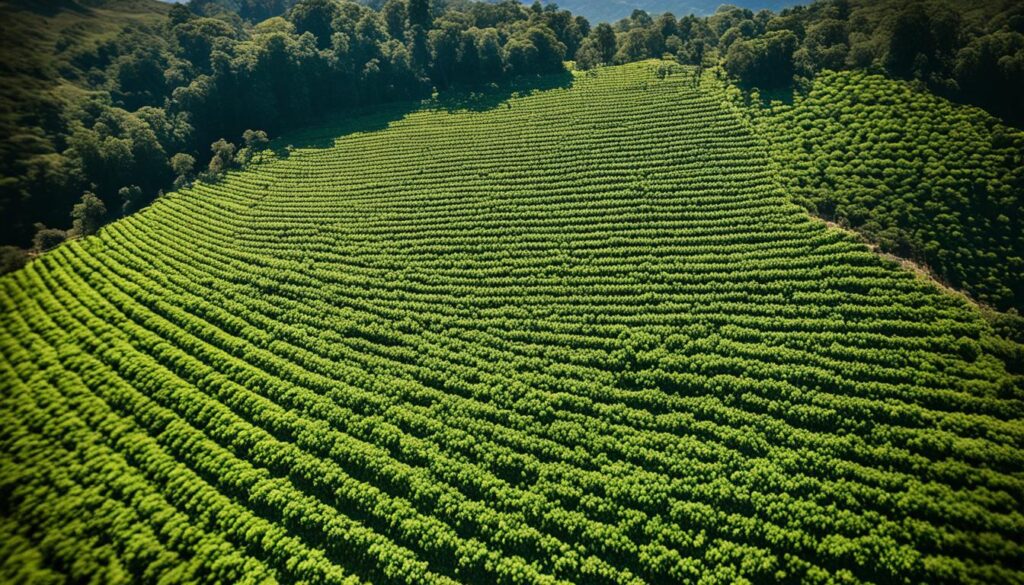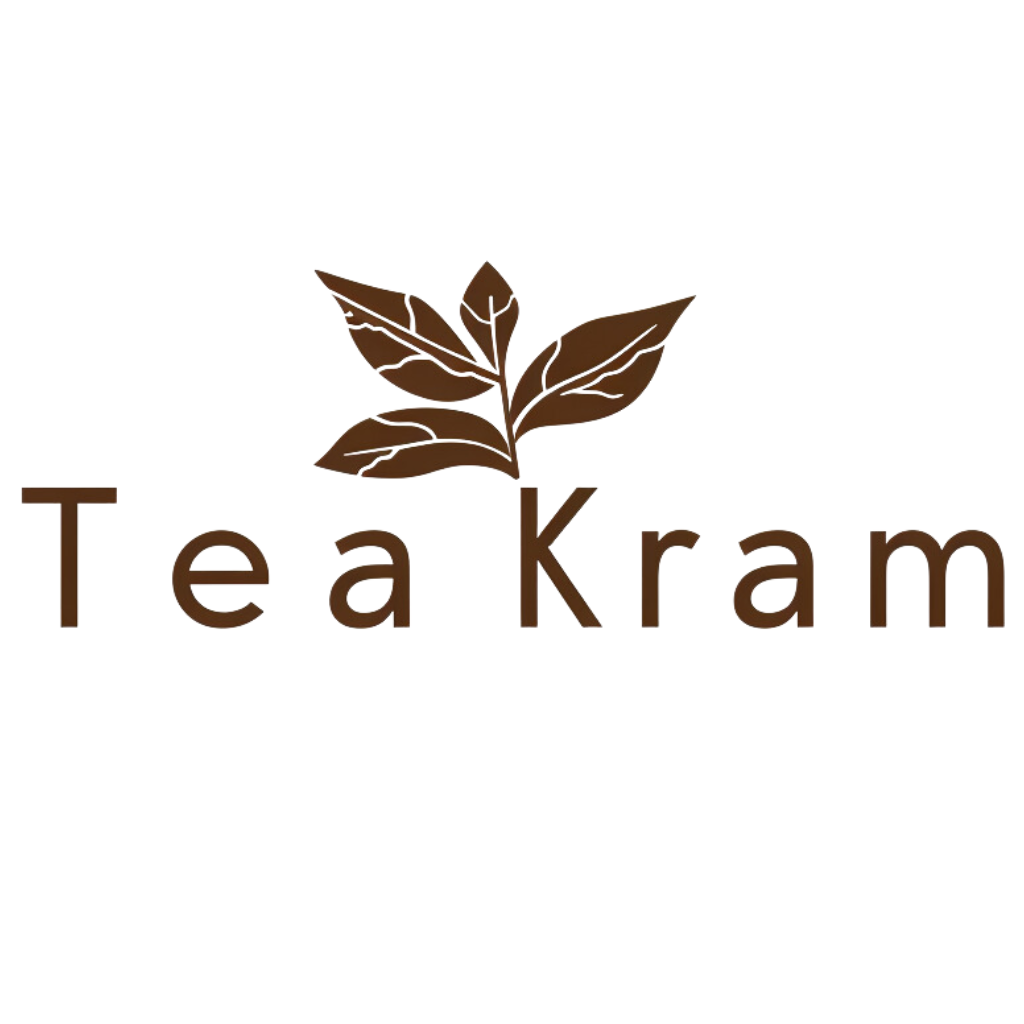Exploring the coffee industry shows the big effect of ethical supply chain choices on the journey from farm to cup. Practices like direct trade and fair trade change how coffee tastes and feels. They also support environmentally friendly trade. Direct trade connects coffee roasters and farmers closely. This leads to better quality coffee and fairer pay for growers.
By choosing ethical production methods, coffee lovers and companies help create a better future. This approach is about fairness and caring for our planet.
Key Takeaways
- Understanding the impact of ethical sourcing on coffee quality and producer well-being.
- The distinction between direct trade’s personalized approach and fair trade’s structured system.
- Direct trade encourages transparent and sustainable relationships, offering better livelihoods for farmers.
- Environmental conservation is a critical element of both fair trade and direct trade practices in sourcing.
- The role of consumers in supporting ethical supply chains through informed purchasing decisions.
- How ethical sourcing contributes to broader global trade ethics, leading to more responsible consumerism.
The Rise of Direct Trade in Coffee Roasting
The coffee industry is moving towards sustainable practices. Direct trade is leading this change. It is a different way to buy and sell coffee, focusing on fairness and fewer middlemen.
Defining Direct Trade
Direct trade is a way of doing business. It means coffee roasters and producers work closely. This approach is about quality, ethics, and helping coffee farmers improve their lives. It connects our coffee to its roots.
The Impact on Flavor and Quality
Direct trade greatly affects coffee’s taste and quality. Roasters can choose their beans, ensuring only the best coffee. Sustainable farming methods used by producers enhance the coffee’s flavor.
The Story Behind the Beans
Each cup of directly traded coffee tells a story. This story links the drinker to the coffee’s origin. It shows the value of ethical sourcing and the demand for openness in trade.

Direct trade fosters ethical sourcing in coffee roasting. It highlights unique coffee flavors through direct partnerships and stories. This approach puts direct trade at the heart of modern coffee roasting.
Comparing Direct Trade and Fair Trade
In the world of coffee, two main approaches stand out: direct trade and fair trade. Both aim to source coffee ethically but do it differently. Direct trade focuses on building close relationships without formalities. Fair trade follows a structured method to improve both farmers’ lives and the environment.
Direct Trade Vs. Fair Trade: An Overview
Direct trade is all about making a personal connection between coffee makers and roasters. It cuts out the middle layers to boost transparency and build strong bonds. On the other hand, fair trade uses a systematic method. It’s a community effort, led by certification, to connect farmers with the global market fairly. Both methods, however different, aim to better lives and communities in the coffee world.

The Certification Process of Fair Trade
Getting fair trade certified is tough and detailed. It checks many things to make sure everyone follows ethical rules. This process ensures that all steps meet specific social, economic, and environmental standards. The aim is to make buyers feel good about their purchase. They can be sure it helps farmers and protects our planet.
| Criterion | Direct Trade | Fair Trade |
|---|---|---|
| Core Objective | Transparency and personalized relationships | Standardized conditions for fair labor and trade |
| Relationships | Direct connections with individual producers | Structured, regulated through cooperatives |
| Certification | Not applicable | Required; involves a set of compliance standards |
| Consumer Trust | Based on the roaster’s reputation and narrative | Based on the fair trade label and regulated standards |
| Social Impact | Specific, targeted outcomes based on partnership goals | Broad empowerment through collective bargaining and initiatives |
| Pricing | Prices negotiated between producer and roaster | Minimum price set to cover sustainable production and living costs |
Direct trade and fair trade each have unique benefits. They aim to raise ethical standards in the coffee industry. Understanding each approach helps us see their dedication to responsible sourcing and global fairness.
Advantages of Ethical Sourcing Methods
Global trade is moving towards ethical supply chain practices. This shift is driven by consumers and new rules. Businesses now strive to adopt responsible sourcing and sustainable global trade ethics. These approaches bring many benefits.
Transparency in supply chains helps with following laws and building trust. People want to know the origin of their products and the conditions at factories. This pushes companies to source responsibly. It’s not just about ethics; it’s also good for competition.
- Direct trade improves life for farmers and leads to better products for us.
- Responsible sourcing ensures fair pay and safe workplaces, supporting human dignity and justice.
- Practices in sustainable trade help protect the environment by reducing harm.
Take coffee, for example. Fair trade means farmers get a decent wage. It also means adopting eco-friendly farming and strengthening farm communities.
Direct trade is more than a purchase—it’s a partnership for progress, aligning the coffee industry with a more equitable and ecologically mindful future.
Fair trade certificates show companies respect worker rights and the environment. This wins over customers who care about ethical values.
Direct and fair trade have broad impacts, from individual buyers to worldwide regulators. They promote a commerce style that cares for people and the planet. It’s a new standard for business, linking success with global and environmental care.
Challenges and Limitations of Direct Trade and Fair Trade

The coffee industry has worked hard to be more ethical in trade. Both direct trade and fair trade aim to be sustainable and socially responsible. Yet, both models face challenges and limitations.
Direct Trade Challenges for Coffee Roasters
Direct trade seeks a closer link between coffee roasters and farmers. But there are big challenges. Establishing direct partnerships takes lots of time and money. The need for transparency and sustainability rests on roasters’ ethical actions. This makes it hard for customers to check on their own.
Limitations and Criticisms of Fair Trade
Fair trade aims for clear guidelines but brings limitations too. Small producers often can’t afford the certification fees. This system also faces issues like bureaucracy, impacting how much help farmers get.
| Aspect | Direct Trade | Fair Trade |
|---|---|---|
| Investment | High time and resource commitment | Upfront certification costs |
| Transparency | Varies by roaster; no standard certification | Structured system; potential bureaucratic delays |
| Producer Support | Relies on individual roasters’ efforts | Inclusivity challenged by fees; might favor larger cooperatives |
| Consumer Verification | Difficult without universally recognized certification | Certification mark provides reassurance but not flawless |
| Impact on Sustainability | Depends on genuine involvement in sustainable practices | Can reinforce best practices but may exclude smallest farms |
In summary, both direct trade and fair trade aim to make trade more ethical. However, dealing with each model’s unique challenges is key to helping the coffee industry be fairer for everyone.
Direct Trade and Ethical Sourcing: Creating Real-World Impact
Responsible sourcing goes beyond just buying coffee. It helps to grow communities and shows a company’s commitment to being socially responsible. Direct trade changes lives by benefiting the communities it touches. It’s a powerful way to make a real difference.

Community Development and Social Responsibility
Responsible sourcing aims to lift up coffee-producing communities. Companies that practice direct trade invest in things like better equipment and education. This kind of sourcing isn’t just about buying a product. It’s about helping the community that makes it thrive and succeed.
Stories of Direct Trade Impact: Schools and Clinics
Direct trade has led to big changes, like new schools and clinics. For example, in Nicaragua, direct trade helped build schools for kids. And in El Salvador, clinics were built to improve health. These stories show how direct trade really helps communities grow stronger.
Marketing Direct Trade: Beyond the Aesthetic and Stories
Sustainable global trade ethics are key, and marketing this is vital for businesses. Brands need to share their authentic tales and show how they practice accountability. This goes beyond just the story of the product.
Marketers know consumers love a great story. Yet, they stick with brands that are truly ethical. It’s time for the direct trade sector to use strategies that meet these consumer demands for transparent trade partnerships.
In the world of direct trade, marketing is not just about selling a product; it’s about telling a story with substance and engaging consumers in a partnership that feels both personal and principled.
A good marketing strategy emphasizes how sustainable global trade ethics are more than met. It connects deeply with customers by showing the impact on the communities that produce the goods. It shows there’s more behind the product’s story.
Using transparent labels and detailed sourcing reports can show commitment to ethical trade. Celebrating community achievements also highlights this commitment.
- Transparency in operations and partnership revealing
- Inspiring narratives centered around producer empowerment
- Impact assessments demonstrating the long-term benefits of such trade practices
Effective marketing goes beyond just making sales. It creates a lasting impact by educating buyers about sustainable global trade ethics. This builds a type of loyalty that can’t be bought with money.
The aim is to blend the product’s story with strong ethical practices. Brands that do this well, promoting marketing ethical sourcing with creativity and honesty, will succeed. They will stand out in a market that values integrity.
Evaluating the Financial Viability of Ethical Sourcing Strategies
When it comes to business with a conscience, the financial viability of ethical sourcing matters a lot. These strategies aim to do good but need to balance ideals with costs. We look closely at direct trade to understand the economic facts behind ethical buying. This analysis is key to going through complex ethical production and ensuring a successful future.
Value Proposition of Direct Trade
Direct trade is praised for empowering farmers and promoting ethical production methods. It seeks to better farmers’ lives and provide top-notch products to consumers. Yet, it raises a big question: can this be done without hurting profits? Looking closely at direct trade can show us how ethical actions and profit can go hand in hand.
Transparency, Quality, and Connection
Direct trade is built on openness, superior quality, and close relationships. Customers want these but finding their true value can be tough. There’s doubt that these traits alone can make a brand successful. However, blending them with what customers want can create success. Ethical sourcing becomes more than just talk. It becomes a way to make real money by winning over customers for the long haul.



